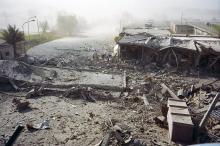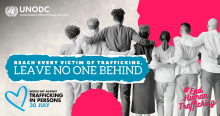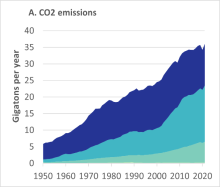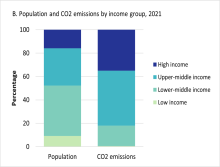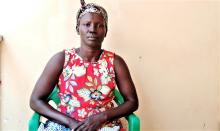World Humanitarian Day: Honouring Our Commitments to the People We Serve, and to the Humanitarians Who Serve Them
Year after year, the humanitarian community has risen to the challenge. Humanitarian operations have expanded, and more and more humanitarians have rallied to the cause.
Chronicle Conversation with United Nations Under-Secretary-General Amandeep Gill, 20 July 2023
Under-Secretary-General Amandeep Gill, the Secretary-General's Envoy on Technology, discusses the state of artificial intelligence (AI), its potential use by the United Nations to address global problems, and the need for international AI governance.
Breastfeeding and Work: A Balancing Act
Women continue to face the challenge of balancing breastfeeding and work.
Despite Progress, More Needs to Be Done to Address the Crime of Trafficking in Persons
New and emerging issues continue to cause vulnerability to trafficking, to facilitate it, or to complicate responses to this problem.
Generative Artificial Intelligence: What It Is, What It Is Not and What It Can Be for the United Nations
It is one thing to utilize AI to draft memos or automate workflow in a company, but the work of United Nations professionals involves engaging in policy and operational decision-making that has tangible human consequences on the societal and everyday levels at a global scale.
As the World's Population Surpasses 8 Billion, What Are the Implications for Planetary Health and Sustainability?
Ultimately, planetary health and the sustainability of our economic system will depend on the social, demographic, economic and environmental choices that we make.
Micro-, Small and Medium-sized Enterprises Are Key to an Inclusive and Sustainable Future
Micro-, small, and medium-sized enterprises (MSMEs) are engines of economic growth and employment, accounting for 90 per cent of businesses, up to 70 per cent of all jobs and 50 per cent of gross domestic product (GDP) at the global level.
The Future We Want Requires More Women in Diplomacy
At the United Nations, we, the women working in diplomacy, along with our feminist male allies, have an opportunity to drive forward the change we need.
Twenty Years of Progress Is Not Enough: We Must Act Now to End Obstetric Fistula
Obstetric fistula can be prevented when there is access to quality, comprehensive sexual and reproductive health services and information.
Protecting the Tree of Life: The Path Forward
Though we humans share the earth with the rest of its life forms, and we are an integrated part of its biodiversity, we have an outsized impact on the health of the planet.


